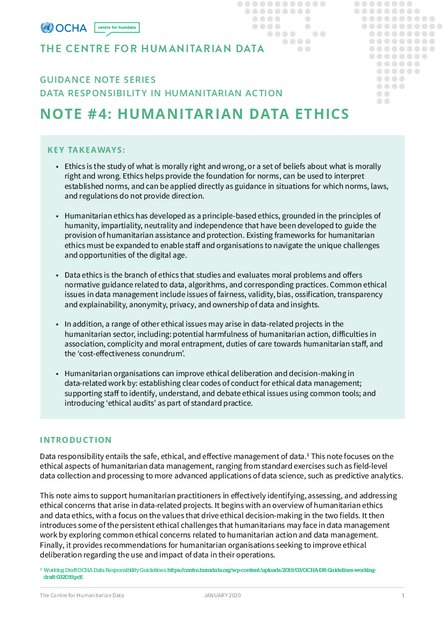
Key takeaways:
- Ethics is the study of what is morally right and wrong, or a set of beliefs about what is morally right and wrong. Ethics helps provide the foundation for norms, can be used to interpret established norms, and can be applied directly as guidance in situations for which norms, laws, and regulations do not provide direction.
- Humanitarian ethics has developed as a principle-based ethics, grounded in the principles of humanity, impartiality, neutrality and independence that have been developed to guide the provision of humanitarian assistance and protection. Existing frameworks for humanitarian ethics must be expanded to enable staff and organisations to navigate the unique challenges and opportunities of the digital age.
- Data ethics is the branch of ethics that studies and evaluates moral problems and offers normative guidance related to data, algorithms, and corresponding practices. Common ethical issues in data management include issues of fairness, validity, bias, ossification, transparency and explainability, anonymity, privacy, and ownership of data and insights.
- In addition, a range of other ethical issues may arise in data-related projects in the humanitarian sector, including: potential harmfulness of humanitarian action, difficulties in association, complicity and moral entrapment, duties of care towards humanitarian staff, and the ‘cost-effectiveness conundrum’.
- Humanitarian organisations can improve ethical deliberation and decision-making in data-related work by: establishing clear codes of conduct for ethical data management; supporting staff to identify, understand, and debate ethical issues using common tools; and introducing ‘ethical audits’ as part of standard practice.